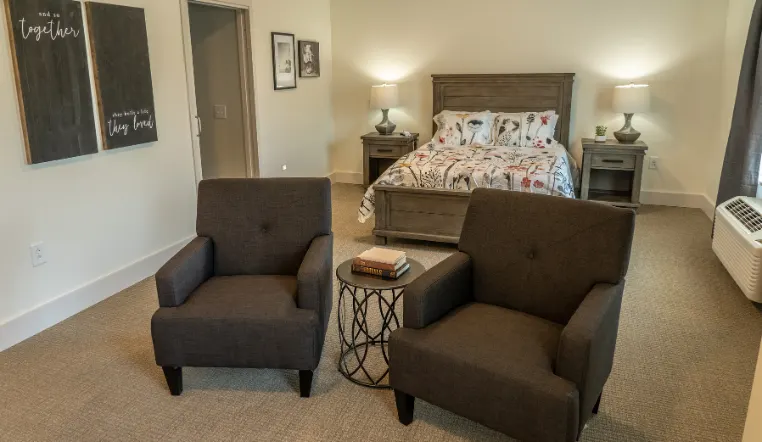The first assisted living facility was developed in the late 1980s after Dr. Keren Brown Wilson’s mother had a stroke and was forced to live in a nursing home. Brown Wilson’s mother had the ability to take care of herself, but couldn’t live alone, and there was no place other than a nursing home for her to go.
Assisted living communities have grown and changed since then, offering more services as people have requested them. However, because of their position between independent living and skilled nursing, residence styles, buildings, staff and services vary widely. These communities are also referred to as congregate housing, residential care, adult congregate care, boarding home, or domiciliary care. Unlike nursing homes, assisted living communities are not regulated nationally. Each state has its own laws, regulations and licensing standards.
What Kind of Care Will My Family Member Receive?
Assisted living communities are suitable for people who, like Brown Wilson’s mother, need very little daily care. They may need reminders to take their medication or help bathing or dressing or they may have dementia.
In most states, these communities offer:
- Assistance with daily living activities (bathing, dressing, eating, toileting, etc.)
- Central dining programs that include three meals a day
- Educational activities
- Emergency call systems in private and common areas
- Exercise activities
- Health services and medication administration
- Housekeeping and maintenance
- Organized recreational activities
- Personal and/or nonpersonal laundry services
- Social services and religious activities
- Transportation arrangements
- Wellness programs
- 24-hour security
Most communities begin with an hour of personal care services each day. That amount of time may increase, depending on the resident’s needs.
Memory Care
Many assisted living communities offer memory care sections specifically designed to meet the needs of people with dementia. Residents who do best are those who have few physical disabilities.
In many memory care sections, residents participate in all activities in an environment designed to promote cognition and memory. Specially-trained staff and special memory activities are frequently included.
Is Assisted Living the Best Option for My Loved One?
Your senior loved one qualifies for assisted living based on a report from their doctor. Community staff and the family meet to determine a care plan customized to your loved one’s needs.
If your parent meets the criteria for assisted living, it is likely to be the best option, because it offers transportation, activities, nutritious meals, and safety, along with the freedom to make their own decisions and do what they want.
Assisted Living at Cranberry Park
Cranberry Park offers more extensive help in assisted living than many other communities. In assisted living, our registered nurses, licensed practical nurses, and state-tested nursing assistants provide care with dignity in a home-like setting.
Residents at Cranberry Park care communities in Canal Winchester, Mill Run, New Albany, Pickaway and Whetstone receive all the usual services, as well as:
- 24-hour professional nursing staff
- Private apartments
- Restaurant-style bistro menus prepared by chefs
- Health & wellness monitoring
- Podiatry, dental & optometry Services
- Psychological services
- Physical, occupational & speech therapy available
- Furnished respite suite for short-term accommodations
- Our Monterey and West Park communities also offer memory care for seniors with dementia.
If you are a central Ohio caregiver searching for care for a senior loved one, please contact us. We will be happy to help!


